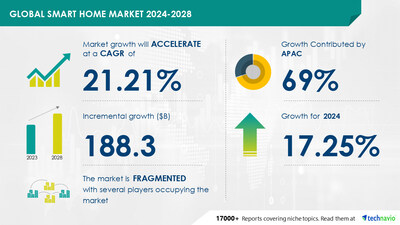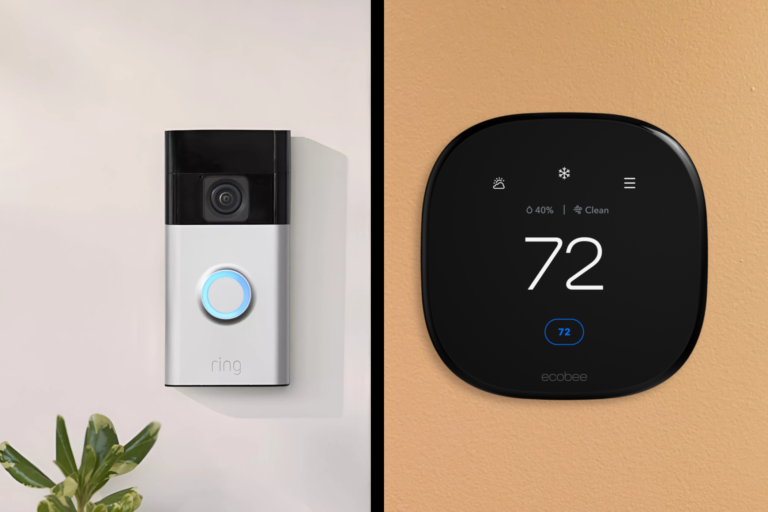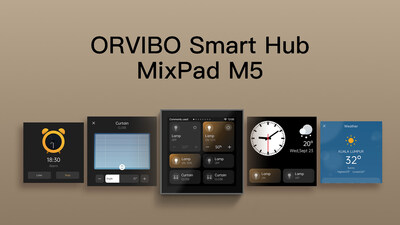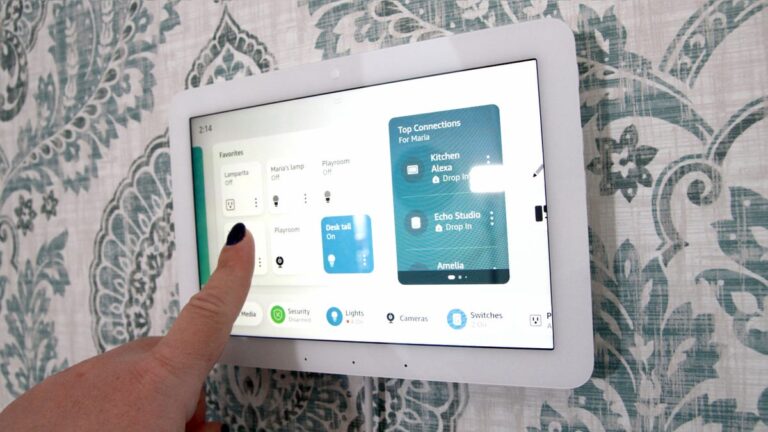Smart Home Market Projected to Grow by USD 188.3 Billion (2024-2028) Fueled by Increased Interest in Home Automation and AI-Driven Innovations
The Future of Smart Homes: Market Growth and Trends (2024-2028)
The global smart home market is set to see tremendous growth in the coming years, with a projected increase of USD 188.3 billion from 2024 to 2028. According to Technavio, this market is expected to grow at a stunning annual growth rate (CAGR) of almost 21.21%. As more consumers show interest in home automation, the industry is witnessing a rise in strategic partnerships among various tech companies.
Key Drivers of Market Growth
Several key factors are fueling this growth in the smart home market:
- Consumer Interest: More homeowners are exploring solutions for energy management, convenience, and safety.
- Technological Advancements: Innovations such as AI and machine learning are enhancing the functionality of smart devices.
- Strategic Partnerships: Companies are collaborating to improve interoperability between smart home devices.
Leading Companies in the Smart Home Sector
The market is dominated by several major players, including:
- ABB Ltd.
- Alphabet Inc. (Google)
- Amazon.com Inc.
- Apple Inc.
- Samsung Electronics Co. Ltd.
- Honeywell International Inc.
- Schneider Electric SE
Market Segmentation
The smart home market can be segmented based on:
- Application: Home entertainment, smart appliances, energy management, lighting control, and security systems.
- Technology: Wireless and wired solutions.
- Geography: North America, Europe, Asia-Pacific, the Middle East and Africa, and South America.
Current Trends in Smart Homes
As technology evolves, several trends are noticeable in the smart home market:
- Home Entertainment: The popularity of smart speakers and devices has led to a stronger focus on home entertainment solutions.
- Energy Efficiency: Smart devices such as thermostats and power strips are designed to minimize carbon footprints.
- AI Integration: AI in home devices helps personalize user experiences for enhanced convenience.
Challenges Facing the Smart Home Market
Despite the significant growth, there are challenges that the industry must address:
- Interoperability Issues: Many devices face compatibility problems, affecting user experience.
- Cybersecurity Concerns: With the increase of smart devices, potential cyber threats pose risks to user data and privacy.
The Role of AI in the Smart Home Revolution
Artificial Intelligence is significantly reshaping the smart home landscape. Here’s how:
- Automated Experience: AI-powered devices learn user habits and automate tasks accordingly.
- Enhanced Security: Smart security systems utilize AI for real-time alerts and monitoring.
- Energy Management: AI helps optimize energy use, leading to lower costs and reduced environmental impacts.
Global Influence of Smart Homes
With over 4.5 billion Internet users worldwide, smart home solutions cater to a vast audience. The advantages include:
- Convenience: Users can control devices remotely through applications.
- Safety: Advanced security measures protect against intrusions.
- Energy Savings: Smart devices monitor usage and help reduce waste.
Conclusion: The Bright Future of Smart Homes
The future of the smart home market looks incredibly promising. With technological advancements, growing consumer interest, and strategic partnerships, the expansion continues unabated. Although challenges like interoperability and cybersecurity remain, the overall outlook is one of innovation and growth. As guidance by companies like Technavio indicates, smart homes will become integral to daily living, promoting safer, more efficient, and more enjoyable home environments.
If you want to stay ahead of the trends and explore key insights, consider reading the full market report by Technavio to discover more about the exciting evolution in this sector and the impact of AI on market dynamics. Download the report here.









One Comment